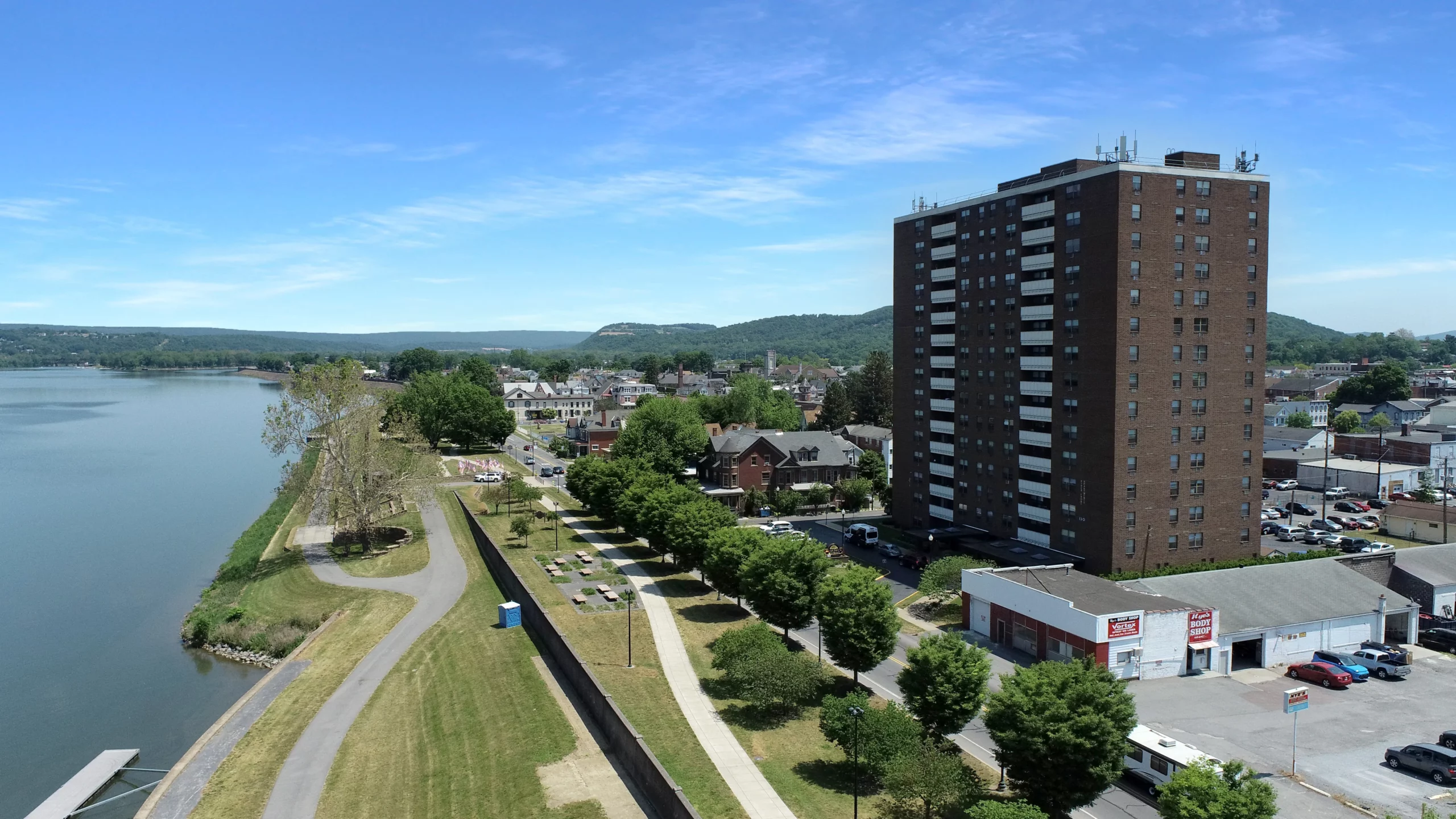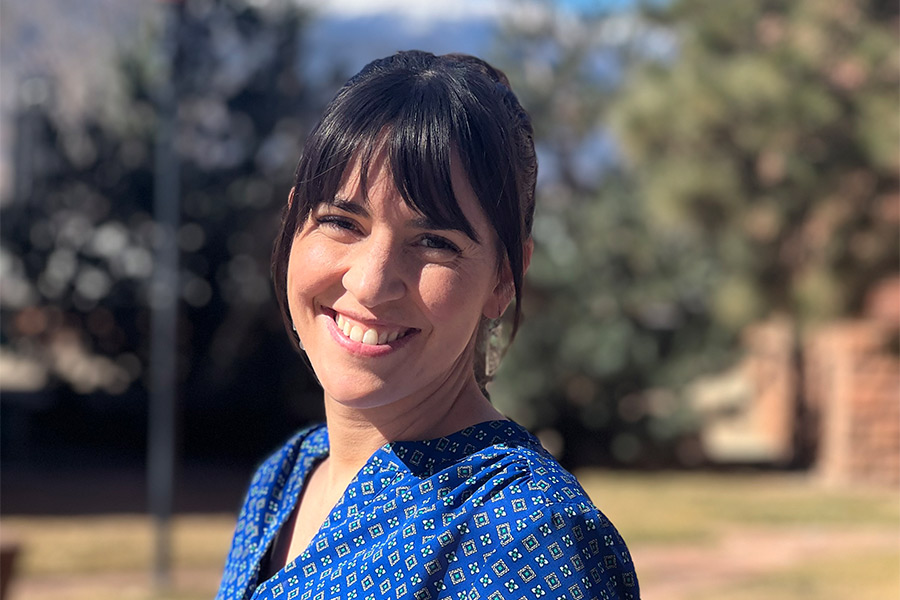Religious residents at an apartment complex in Pennsylvania for senior citizens and people with disabilities received an unwelcome surprise in their mailboxes in March of 2025.
The apartment complex sent a letter to all its residents, explicitly banning them from having “Bible studies or meetings” in common areas. The rule also prohibited any religious materials, religious signs, or religious decorations, even on the door of their own apartment.
The hostility to religious tenants was palpable. The discriminatory rule stated in bold for extra emphasis that the rule banning Bible studies and religious decorations applies to “anywhere on the property that is not inside of your apartment.”
DEI used by Apartment Complex to Treat Religion like Dangerous Asbestos
Why would the apartment complex do such a thing? The apartment complex did not hide its motives for discriminating against religious tenants. They, without sensing the irony, justified their new rules excluding religion in the name of DEI concepts of inclusion and diversity!
The letter stated that the new rule prohibiting any Bible Studies, religious activities or decorations, including on the residents’ own door, was to “build an environment focused on inclusivity and diversity.” The Property Management company piled on to the first letter from the Apartment complex, and sent a second letter the very next day, stating that the rule was to “ensure everyone in our communities have an inclusive experience.” Finally, the letter justified its discrimination against religious tenants using the common areas for Bible Studies or decorating their own apartment door with religious holiday decorations because the property management company wanted to “limit the likelihood of offending anyone who visits or lives in our communities.”
The new policy permitted gatherings to read or talk about non-religious books, but not religious ones. The letters explained that the common areas would be open for other non-religious uses and activities, such as “potluck dinners, barbecues, and heart health education.” (Apparently, they were only worried about people offended by seeing others use a space for Bible study, but they were not worried that a Vegetarian might be offended by people eating meat at a barbeque!)
The letters even explained that tenants could still decorate with “floral decorations and pastel colors for the Spring season, autumn leaves for the Fall season, and snowflakes and icicle lights for Winter season.” They could decorate for holidays such as “Independence Day, Labor Day, Memorial Day, Birthdays, etc.” But No Religion Allowed!
The Apartment Complex engaged in Religious Discrimination
By implementing this new policy, the facility was engaged in religious discrimination in violation of the Fair Housing Act, as well as unconstitutional viewpoint discrimination in violation of the First Amendment of the United States Constitution. Federal laws and regulations prohibit religious discrimination in senior living facilities. Apartments and Property Management Companies cannot deny access to an apartment’s community room or prohibit religious decorations. Denial of access to the common areas because of their religious nature or content, but where those same areas are otherwise open to groups for other non-religious purposes, such as “potluck dinners, barbecues, and heart health education,” constitutes viewpoint discrimination. Common areas open for secular uses must be equally open to host religious uses as well.
Plus, denying religious tenants equal access makes the facility less diverse and less inclusive, not more diverse or inclusive. The freedom to exercise and practice religion is one of the most sacred protections enshrined in the First Amendment of the United States Constitution. The Fair Housing Act (FHA) preserves the free exercise and practice of religion in housing, making it unlawful to discriminate on the basis of religion. 42 U.S.C. §3604(b). Buyers and renters are not only protected from religious discrimination before the sale of the residence, but these renters are also protected after the sale as they continue to use the property.
Even the Department of Justice (DOJ) has provided explicit instructions regarding residents’ rights to engage in religious speech and other activities in common areas and meeting rooms:
No one may be discriminated against in the sale, rental or enjoyment of housing because of their religious beliefs. This includes equal access to all the benefits of housing: someone could not, for example, be excluded from using a common room for a prayer meeting when the room may be reserved for various comparable secular uses.
U.S. DOJ, Know Your Rights: Federal Laws Protecting Religious Freedoms, https://www.justice.gov/sites/default/files/crt/legacy/2010/12/15/know_your_rights.pdf (last visited March 28, 2025) (emphasis added).
The fact that the senior living facility receives government subsidies does not give the facility a free pass to discriminate on the basis of religion in violation of federal law. Those facilities are still subject to the Department of Housing and Urban Development’s (HUD’s) housing regulations, which make it clear that “limiting the use of privileges, services, or facilities, associated with a dwelling” because of the owner’s or tenant’s religion is prohibited. 24 C.F.R. 100.65(b)(4).
The housing complex is furthermore unable to claim that by taking government money, it can prohibit religious gatherings or decorations so that it does not violate the Establishment Clause. There is no violation of the Establishment Clause when equal access is provided to the facility where both religious and non-religious activities and signage can share the same space. There is, however, a violation of the First Amendment when the government favors one viewpoint over another, as it did in this case.
It is becoming all too common for senior citizens and individuals with disabilities to become victims of illegal religious discrimination. It is extremely important to many residents at these living facilities to form Bible studies and prayer groups where they can meet in common areas, especially since many of these residents are disabled, homebound, and physically unable to attend church.




